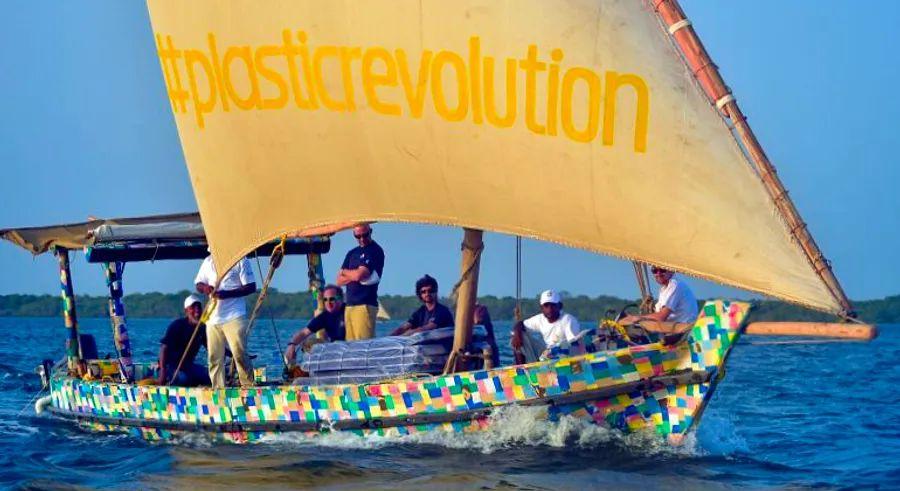A group from Kenya has successfully built the world’s first dhow made entirely from plastic, a pioneering project with global significance.

While traditional dhows are crafted from wood, this bold new initiative is shaking things up along the East African coastline.
The plastic dhow is set to embark on at least two major expeditions this year, pushing the boundaries of eco-friendly maritime innovation.
The dhow’s inaugural journey started this month, traveling from Lamu Island in Kenya to Stone Town in Zanzibar, Tanzania.
Known as the FlipFlopi Project, this revolutionary vessel will make a series of stops along its 500 km journey, promoting a 'plastic revolution' to coastal communities in both Kenya and Tanzania, as explained by Dipesh Pabari, the project's leader.
According to Pabari, the FlipFlopi Project is focused on raising awareness among local communities about the harmful effects of single-use plastics, while also educating them on how to properly recycle plastic waste.
Pabari emphasized that the primary goal is to expand the impact of the plastic revolution and continue to spotlight the environmental dangers posed by single-use plastic, as he shared with UN Environment.
The construction of the dhow
The vibrant, rainbow-hued FlipFlopi dhow spans 9 meters in length and is crafted from discarded plastics collected during routine ocean cleanup efforts.
This groundbreaking vessel is the world’s first dhow to be made entirely from recycled plastic materials.
The boat was completely built on Lamu Island by Ali Skanda, the lead boatbuilder and project co-leader, alongside a team of dedicated volunteers.
Pabari highlights that the project’s distinctly African roots are a key element of its mission.
Pabari emphasizes the significance of this being an African initiative, as the continent remains one of the last to resist fully embracing a consumption-driven society.
The FlipFlopi Project is backed by both UN Environment and the Kenyan government as part of their collective effort to tackle the growing issue of plastic pollution.
According to the United Nations Environment Programme (UNEP), Kenyans are estimated to use approximately 24 million plastic bags every month.
A large portion of this plastic waste ends up in the ocean, where it contaminates the water and is ingested by marine life, causing them to starve from the waste filling their stomachs.
More plastic than fish
The UNEP warns that by 2050, there will be more plastic particles in the oceans than fish, a dire threat to marine ecosystems, wildlife, and the tourism industry.
In response, the Kenyan government implemented a plastic ban to safeguard its coastal beach resorts, which are popular with tourists.
Pabari shares that the FlipFlopi Project team plans to organize community events along their journey, engaging with local schoolchildren, government representatives, and residents.
He mentioned, 'We’ll be organizing recycling workshops where we’ll show people how to create things like rope from plastic bottles, using basic and simple tools.'

1

2

3

4

5
Evaluation :
5/5